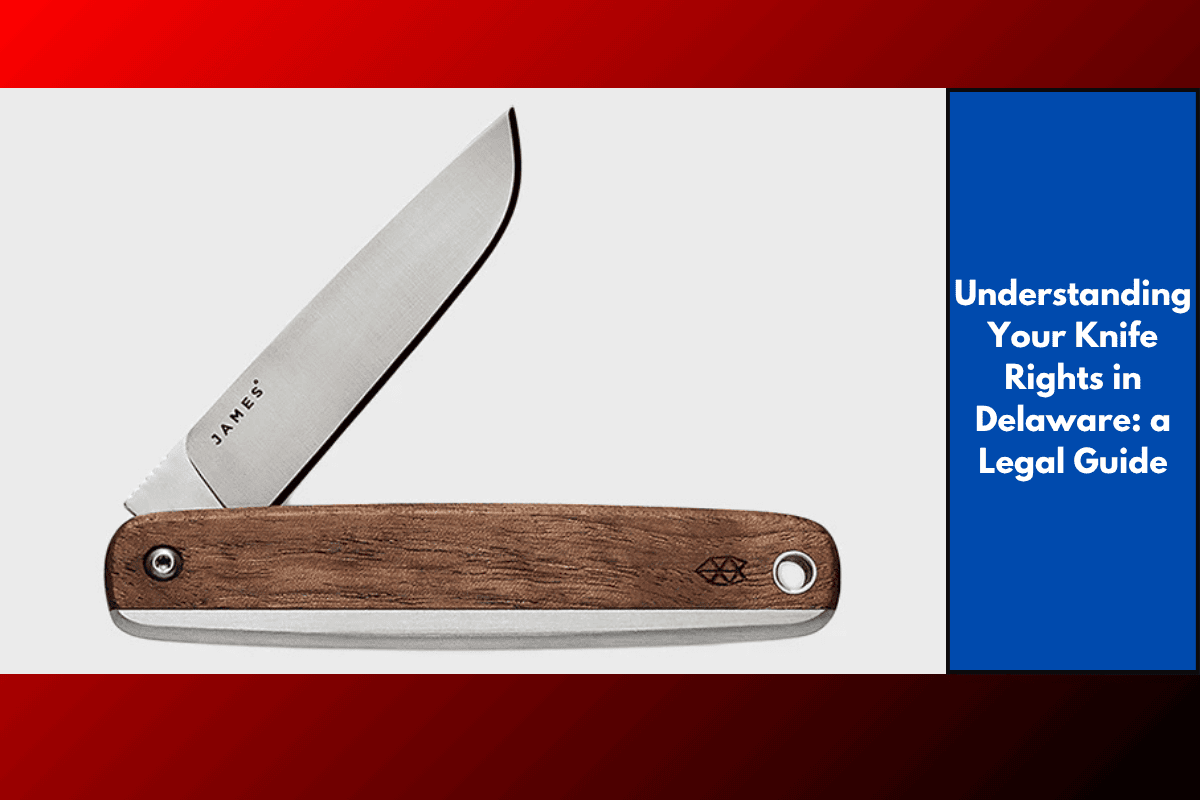In Delaware, as in many states, laws regarding knives and other weapons can be complex. Whether you’re a knife enthusiast, a collector, or someone who uses knives for everyday purposes, understanding the legal landscape in Delaware is crucial to avoid any potential legal issues. Delaware has specific regulations about carrying, using, and possessing knives, so here’s a simple breakdown of what you need to know.
What Knives Are Legal to Own in Delaware?
In Delaware, you can generally own any type of knife, including switchblade knives, automatic knives, and dagger-style knives, as long as you are not prohibited from owning weapons (such as being a convicted felon). However, ownership does not always mean that you can carry or use the knife wherever you want. Understanding when and where you can legally carry these knives is essential.
Carrying a Knife in Delaware
Delaware law specifies certain rules about carrying knives. There are some general principles to keep in mind:
Concealed Carry:
It is illegal to carry a concealed knife with the intent to use it as a weapon. In Delaware, knives can be legally carried, but they must not be hidden or concealed in a way that they could be considered a concealed weapon. For instance, carrying a switchblade or automatic knife with the blade exposed or easily accessible may not be considered concealed, but hiding it in a pocket or under clothing might be.
Open Carry:
Openly carrying a knife is generally legal in Delaware for most types of knives, including pocket knives and folding knives. However, this does not mean you can carry a knife anywhere. There are restricted areas, such as schools, government buildings, and private properties, where carrying any kind of weapon, including knives, is prohibited.
Carrying Knives in Public:
It’s important to remember that carrying a knife in public may draw attention and possibly lead to questions from law enforcement. Carrying a knife without good reason or in a manner that seems threatening could lead to criminal charges, especially if you are found carrying a knife with the intent to use it in an illegal manner.
Prohibited Areas for Knife Carrying
In Delaware, there are specific locations where carrying a knife is strictly prohibited, regardless of the type of knife you are carrying:
Schools: It is illegal to carry any weapon, including knives, on school grounds. This includes both public and private schools, and colleges and universities also generally prohibit knives on campus.
Government Buildings: You cannot carry knives in government buildings, such as courthouses, police stations, or other public office buildings.
Private Property: Landowners and businesses can set their own rules about weapons on their property. If a business or private property owner prohibits knives, you could face trespassing charges for carrying one there.
Exceptions to Knife Carrying Rules
Delaware law does provide some exceptions to carrying knives. For instance, individuals with a valid concealed carry permit may be allowed to carry certain types of knives, but this is subject to local laws and rules. Also, certain occupations—such as those in the military, law enforcement, or emergency services—may be permitted to carry specific knives as part of their work.
Use of Knives in Self-Defense
Using a knife in self-defense is a legal issue that depends on the circumstances. In Delaware, like in many states, self-defense laws allow a person to use reasonable force when they are in imminent danger of harm. However, using a knife in self-defense should be done only if necessary. If you use a knife excessively or in a situation where force was not warranted, you could face criminal charges for assault or even manslaughter.
The key to using any weapon in self-defense, including knives, is that the force used must be proportional to the threat. Delaware law allows self-defense, but it’s important to know where the line is drawn between protection and aggression.
Buying and Selling Knives in Delaware
The sale of knives in Delaware is generally unrestricted, but retailers and sellers must comply with federal and state laws. For example, certain types of knives like switchblades or knives that can be opened by a spring mechanism may have additional federal restrictions on interstate sales. However, in Delaware, as long as you are selling knives for lawful purposes, you should not face issues.
Penalties for Violating Knife Laws
Violating Delaware’s knife laws can lead to serious consequences, depending on the situation. Some of the potential penalties include:
Fines: If you are found carrying an illegal knife or violating knife laws, you could face fines.
Imprisonment: In more severe cases, such as carrying a weapon with criminal intent or violating restrictions on concealed weapons, you could face jail time.
Probation: In cases of lesser offenses, the court may order probation, especially for first-time offenders.
In Delaware, owning a knife is legal, but carrying a knife has clear restrictions. You can legally own many types of knives, but carrying them, especially in public places or concealed, is heavily regulated. Always make sure you understand when and where carrying a knife is legal, follow all relevant regulations, and stay informed about local ordinances. If you’re ever unsure about whether carrying a specific knife is allowed, it’s wise to consult a legal expert.
SOURCES
[1] https://www.akti.org/news/akti-celebrates-intro-of-delaware-knife-legislation/
[2] https://legis.delaware.gov/BillDetail/142112
[3] https://congressionalsportsmen.org/news/delaware-introduces-pro-sportsmen-knife-legislation/
[4] https://delcode.delaware.gov/title24/c009/
[5] https://kniferights.org/legislative-update/














